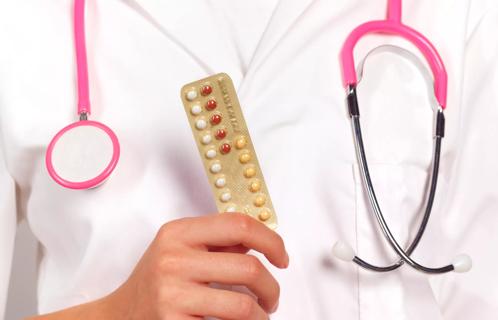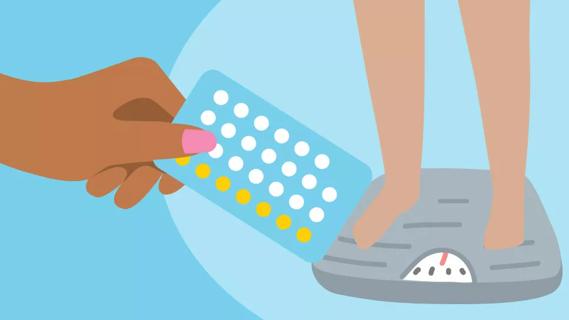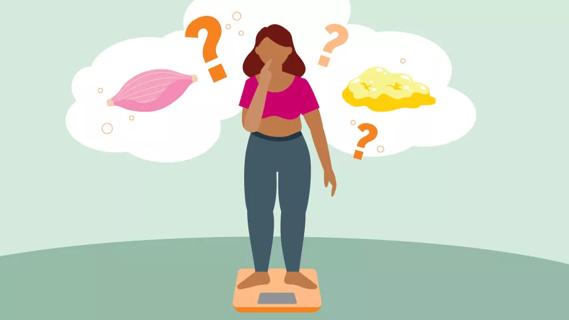Advertisement
A gynecologist explains the challenges of using apps to predict fertility

Your phone knows whether it’s going to rain today, how to get to wherever you’re going fastest and how many hours you slept last night. But is it possible for it to know the inner workings of your reproductive system?
Advertisement
Cleveland Clinic is a non-profit academic medical center. Advertising on our site helps support our mission. We do not endorse non-Cleveland Clinic products or services. Policy
That’s one question raised by the dozens of fertility and period tracking apps available for download.
Many of these apps are built to store and analyze information that a woman enters about her past periods to generate predictions about when she will ovulate or have her next period. Others do that in a more sophisticated fashion by connecting with devices that measure sleep, heart rate, basal body temperature (temperature first thing in the morning) or cervical fluid, hoping to use more data points to predict her cycle more accurately.
“We are definitely seeing more women using mobile apps to track their cycles,” Betsy Patterson, MD, an obstetrician and gynecologist, affirms. “I would say the majority of patients who have these apps use them to either just track their period or to optimize their fertility.”
But, she says, a minority of patients do use fertility awareness-based methods as contraception. And recently, the U.S. Food and Drug Administration even approved one such fertility app, Natural Cycles, as a contraceptive, saying it was affecting enough for women to use to prevent pregnancy.
That particular app uses an algorithm that factors in basal body temperature readings and period information entered by the user to predict the days she is likely to be fertile. It then advises her when she can safely have unprotected sex and when she should use protection.
The appeal is clear: I can prevent pregnancy with no hormones, pills or side effects? Sign me up! But doctors urge caution with using apps in this way.
Fertility apps are essentially tech-fueled versions of fertility awareness-based contraceptive methods, like the calendar method, the cervical mucus method and the basal body temperature method. The problem is, it’s hard to know how, or if, the technology behind these apps addresses the challenges associated with these different methods.
The calendar method, for example, relies on women having a typical cycle that ranges between 26 and 32 days. Irregular cycles can be the result of any number of factors – breastfeeding, stress, and conditions like PCOS, just to name a few. And it’s unclear whether or how these apps take that into consideration.
Likewise, using cervical mucus to predict a woman’s cycle would be less effective for women with a cervical infection, or for those who are breastfeeding, Dr. Patterson says.
“One of the shortcomings of fertility apps is that many of them use their own proprietary algorithms to predict fertility — algorithms which have not been evaluated in peer-reviewed medicine,” she explains.
Advertisement
Whether a woman can safely use an app as her primary source of birth control depends on the app and also on the extent to which she wants to avoid pregnancy, Dr. Patterson says.
Natural Cycles was evaluated in a study of more than 22,000 users. Its “typical use” failure rate was reported to be 7%, meaning that for every 100 women who used the app in a “typical” way (mostly following the instructions, but perhaps occasionally incorrectly or inconsistently), about seven of them got pregnant. For comparison, the CDC estimates failure rates for the calendar method at 24%, while the birth control pill has a failure rate of about 9%.
But, as Dr. Patterson points out, most apps have not been studied in this way.
“I would only recommend using this as a main form of birth control if the woman was OK with getting pregnant,” she says.
Anyone interested in a fertility awareness-based approach to birth control should speak with her healthcare provider about what method may be the best for her, Dr. Patterson adds. “Whether she is doing it in a paper- or mobile-based way, it is helpful to understand the background of what she is tracking and how effective it may or may not be.”
Even if we can’t trust the accuracy of fertility and period tracker apps to prevent unwanted pregnancies, they can have other benefits for women. For example, they are a low-risk way to help a couple better understand the timing of ovulation and, hopefully, decrease the time to conception. They may also help women become more in touch with what’s happening in their bodies.
“I believe a woman’s menstrual cycle is a barometer to her overall well-being,” Dr. Patterson says. “Deviations in the cycle may indicate some physical change in her well-being such as a nutritional deficit, the development of a disease or emotional stressors.”
Advertisement
Learn more about our editorial process.
Advertisement

Your sexual history directly influences your physical, mental and emotional health in a multitude of ways

You may be more prone to hot flashes if you have anxiety, but hot flashes can also rev up anxiety

While it’s probably not your most fertile time, it is possible to get pregnant if you have unprotected sex during your period

The scenarios vary based on how many pills you’ve missed and whether you take a combination pill or progestin-only pill

Despite popular opinion, scientific research shows that most birth control methods don’t contribute to weight gain

Both are needed for a healthy body

Heat starts in your chest and moves up to your neck and face … and then, the sweating begins

While they may not burn calories or cause fevers, these heat waves can make you miserable — but you don’t have to just grin and bear it!

Focus on your body’s metabolic set point by eating healthy foods, making exercise a part of your routine and reducing stress

PFAS chemicals may make life easier — but they aren’t always so easy on the human body

While there’s little risk in trying this hair care treatment, there isn’t much science to back up the claims